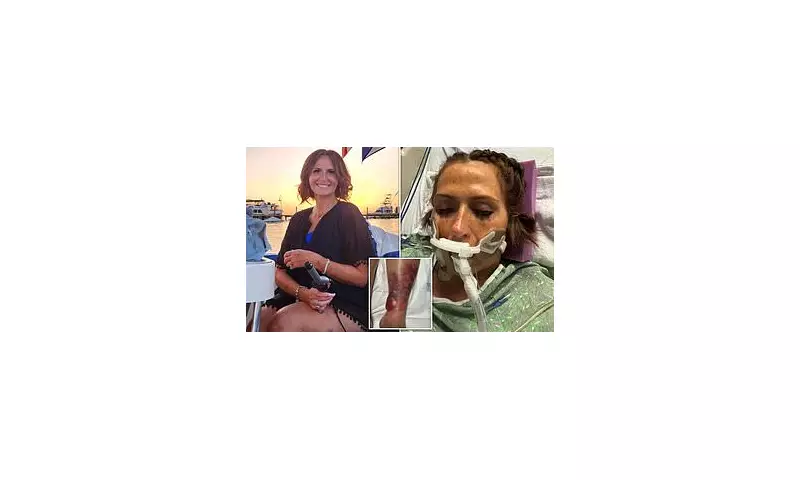
A Florida family is mourning the devastating loss of a mother who contracted a deadly flesh-eating bacteria during what should have been an ordinary day at the beach.
Michelle White, 45, from Ellenton, Florida, visited a local beach with her family in late August. Within days, what began as mild discomfort escalated into a life-threatening medical emergency.
The Rapid Onset of Symptoms
White initially experienced leg pain that she attributed to a cramp or minor injury. However, her condition deteriorated rapidly. She developed concerning symptoms including:
- Severe pain and swelling in her leg
- Discoloration and unusual markings on her skin
- Fever and chills
- Overall weakness and fatigue
Her family rushed her to HCA Florida Blake Hospital where doctors made a terrifying diagnosis: necrotizing fasciitis caused by Vibrio vulnificus bacteria.
A Desperate Fight for Survival
Medical teams performed multiple emergency surgeries in an attempt to stop the bacteria's progression. Surgeons worked to remove infected tissue, but the aggressive pathogen continued to spread through her body.
Despite their efforts and advanced medical intervention, White succumbed to the infection on September 7th, leaving behind her husband and three children.
Understanding Vibrio Vulnificus
Vibrio vulnificus is a rare but potentially deadly bacterium that naturally occurs in warm coastal waters. The Florida Department of Health has confirmed 26 cases and 6 deaths from the bacteria this year alone.
Key facts about the infection:
- Typically enters the body through open wounds or cuts
- Can cause severe skin breakdown and tissue destruction
- Rapid progression from initial symptoms to critical condition
- Higher risk for individuals with compromised immune systems
Official Health Warnings Issued
Health officials have issued urgent safety recommendations for beachgoers:
- Avoid entering salt or brackish water with open wounds
- Cover cuts with waterproof bandages if water exposure is unavoidable
- Thoroughly wash wounds and cuts with soap and clean water after water exposure
- Seek immediate medical attention for any unusual symptoms after beach activities
The family's tragedy serves as a sobering reminder of the hidden dangers that can lurk in coastal waters, particularly during warmer months when bacteria levels rise.





